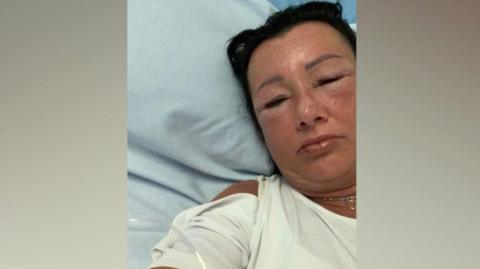A woman has told how she was left in hospital "unable to breathe" after suffering a severe reaction to an unlicensed nasal tanning spray she bought online.
Edith Eagle said she felt like she was "suffocating" and "drowning inside her own body" after the allergic collapse she believes was linked to the product.
Nasal tanners are designed to be sprayed into the nostrils and claim to work by administering a substance known as Melanotan II, a chemical that darkens skin pigmentation.
It is illegal to sell medicinal products containing Melanotan II in the UK but as the tanners are sold cosmetically they fall outside that remit.
